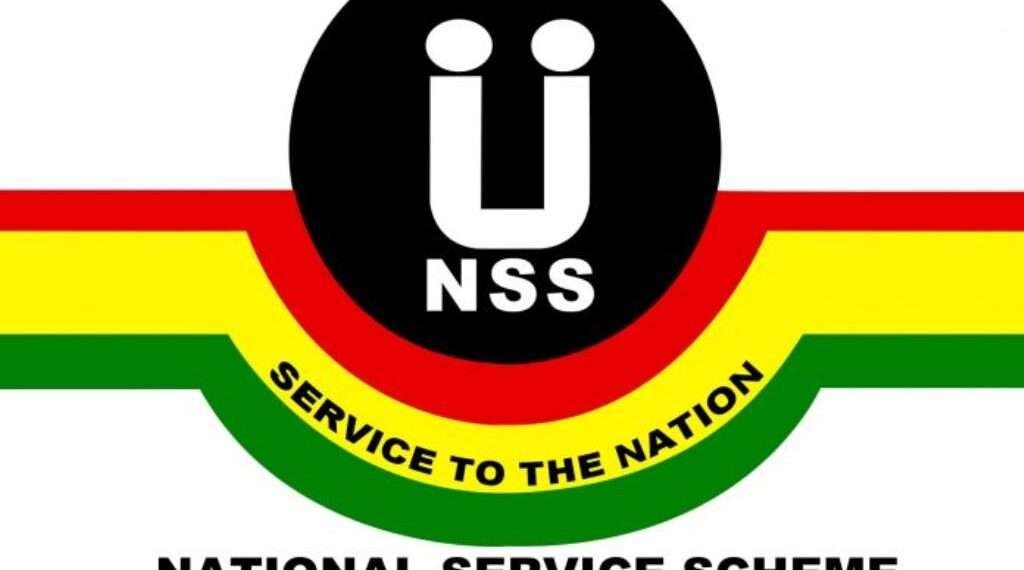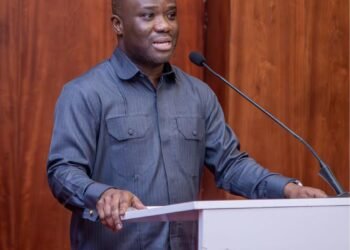The National Service Authority (NSA) scandal represents an overwhelming scale of theft that defies belief, according to Prof. Stephen Kwaku Asare, legal expert and Democracy and Development Fellow at CDD-Ghana.
According to the Attorney General, over GHC 548 million has allegedly been siphoned through an elaborate and well-organized criminal network over six years, implicating directors, vendors, and various accomplices who operated with seeming impunity across multiple regions.
Accordingly, Prof. Asare expressed profound outrage at how the patriotic intent behind the National Service Authority (NSA) has been grossly perverted into what he called a “loot-farm.”
He condemned the actions of directors and their accomplices who tampered with payroll systems, generated ghost names, falsified records, orchestrated bogus supply contracts, and funneled huge amounts of public funds through shell companies.
“The Stealing Was Just Too Much — What Is This? While schools lack desks, hospitals run out of beds, roads remain cratered, and allowances are delayed for genuine service personnel, a select few were inflating budgets, ghosting payrolls, and routing millions through dummy companies. How did this much rot go undetected for so long?”
Prof. Stephen Kwaku Asare
He went on to question the integrity of oversight institutions, emphasizing the glaring absence of audits, effective supervision, responsible boards, internal controls, parliamentary scrutiny, and vigilant watchdogs—underscoring the collective failure of bodies entrusted with protecting public resources.
A Nation’s Silence And Complicity
Furthermore, Prof. Kwaku Asare lamented that many Ghanaians were not entirely unaware of these malpractices.
He pointed out that people whispered about individuals living far beyond their means—flying first class on public salaries, purchasing luxury homes, and displaying lifestyles inconsistent with their legitimate incomes.
“The saddest part? Many of us knew. We whispered about people living far above their pay grades—flying first class on public salaries, buying mansions while earning allowances. But we said little.”
Prof. Stephen Kwaku Asare

He denounced the prevailing culture of silence, highlighting how individuals who attempted to speak up were frequently suppressed, mocked, or dragged into political disputes.
Despite the extensive revelations, he pointed out that some still defend the corruption to protect their associates, political affiliations, or personal interests.
Prof. Asare also drew a direct connection between the scandal and Ghana’s current debt crisis.
According to him, the funds stolen through ghost names and fraudulent contracts ultimately contributed to the country’s debt restructuring, with the financial burden now being carried by citizens through their pensions and taxes.
He emphasized that this is not merely a scandal but a damning indictment of the country’s systemic failures.
“This is not just a scandal. It is an indictment of our systems, our silence, and in some cases, our complicity. If we do not confront this culture of normalized theft, there will be no recovery—economic, moral, or national.”
Prof. Stephen Kwaku Asare
Asset Recovery And Legal Reforms Urged
Moreover, Prof. Asare urged authorities to launch aggressive asset recovery initiatives, emphasizing that prosecution alone is insufficient.
He stressed the importance of tracing, freezing, and returning every stolen cedi to the state, leaving no mansions, luxury vehicles, or offshore accounts untouched.
He further highlighted that dismantling the extravagant lifestyles funded by the stolen service allowances is essential, insisting that the focus must be on achieving both restitution and retribution.
Prof. Asare also called for expedited legal proceedings to avoid prolonged trials that only fuel public cynicism.

“The prosecutions must be swift. We cannot afford another drawn-out courtroom spectacle. No musical chairs of adjournments. No abuse of interlocutory appeals. Justice delayed in cases like this is not just denied—it is defeated.”
Prof. Stephen Kwaku Asare
He cautioned that public trust remains extremely fragile, warning that continued delays in addressing such cases only deepen public frustration.
According to him, each postponement reinforces the growing perception that justice serves the powerful, while ordinary citizens are left to bear the consequences.
Bans, Political Accountability Urged Amid NSA Saga
Beyond legal penalties, Prof. Asare advocated for lifetime bans from public office for individuals found guilty.
He argued that anyone who embezzles funds from a national service program designed for young graduates should permanently lose the privilege of public service.
He called for comprehensive legislation that would prohibit convicted offenders from contesting elections, serving on boards, or receiving any government appointments.
Additionally, Prof. Asare urged political parties to take responsibility and directly confront corruption within their own ranks.

“Political parties must ask deeper questions. What are they really about? Are they vehicles for patronage and plunder, or platforms for reform and service? The silence of party leadership in the face of scandals involving their members is deafening—and damning.”
Prof. Stephen Kwaku Asare
Accordingly, he stressed that invoking due process as a shield for corrupt individuals only serves to entrench wrongdoing.
Political parties, he argued, must establish firm boundaries by expelling corrupt members and restoring their moral integrity, or risk being viewed as complicit in the corruption.
Prof. Asare ended with a stern caution, urging the nation not to grow indifferent or allow another massive scandal like the ₵548 million case to fade from collective memory without consequence. “Because every time we excuse or delay justice, we sink deeper into a moral overdraft—one our future cannot afford to repay.”
READ ALSO: Juliet Ibrahim Reacts to NCA Radio Shutdowns




















